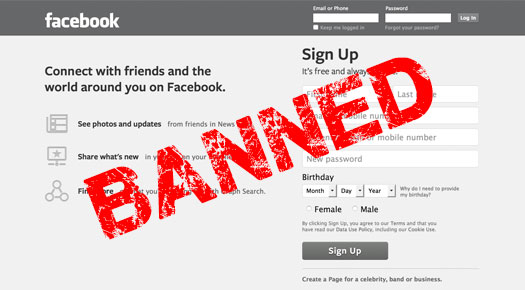
A court in the Turkish city of Ankara has ordered Facebook to block access to all pages that insult Prophet Mohammad, warning the social networking site that if it does not comply with the court’s ruling, it would be banned in totality. On January 25, a state-run news agency reported that the order came through following an appeal by a prosecutor, who decided to file his complaint only days after another court banned access to all websites featuring the controversial Charlie Hebdo cover on Prophet Mohammad.
This is the latest move to crack down on any content that is perceived as offending religious sentiments in a country that is predominantly Muslim, headed by a president, who is believed to have an Islamist leaning.
While Facebook has not yet responded to the court’s ruling, in January, CEO Mark Zuckerberg said that the social networking site would not censor any content in wake of the Charlie Hebdo attacks. Zuckerberg had said Facebook would never allow one country or a group of people to determine what the rest of the world can share. Yet, statistics reveal that Facebook has removed as many as 1,893 items at the request of the Turkish government.
Earlier this year, President Recep Tayyip Erdogan pressed for new legislation that would allow his ministers to temporarily ban websites like Twitter and Facebook, whenever there is any threat of an anonymous whistleblower. Under the proposed law, Turkey’s Telecommunications Directorate would have to follow through within four hours and then seek a court order for the temporary ban to be extended beyond 24 hours. Communications minister Lutfu Elvan went on to defend Erdogan’s proposal, saying it was a necessary measure, especially since a previous legislation, giving more power to ministers to ban websites, was annulled last year. In 2014, Turkey was condemned by international human rights organization for temporarily banning social networking sites like Facebook and Twitter in the light of a corruption scandal. At that time, Erdogan vowed to eradicate Twitter after his government was accused of playing a significant role in the corruption scandal on the micro-blogging website.
Meanwhile, Facebook and Twitter have already been banned in Pakistan after both websites refused to censor blasphemous pictures related to Prophet Mohammad. The ban on Facebook was lifted only after Zuckerberg agreed to have the images in question removed.
Photo Credits: New Europe Online
